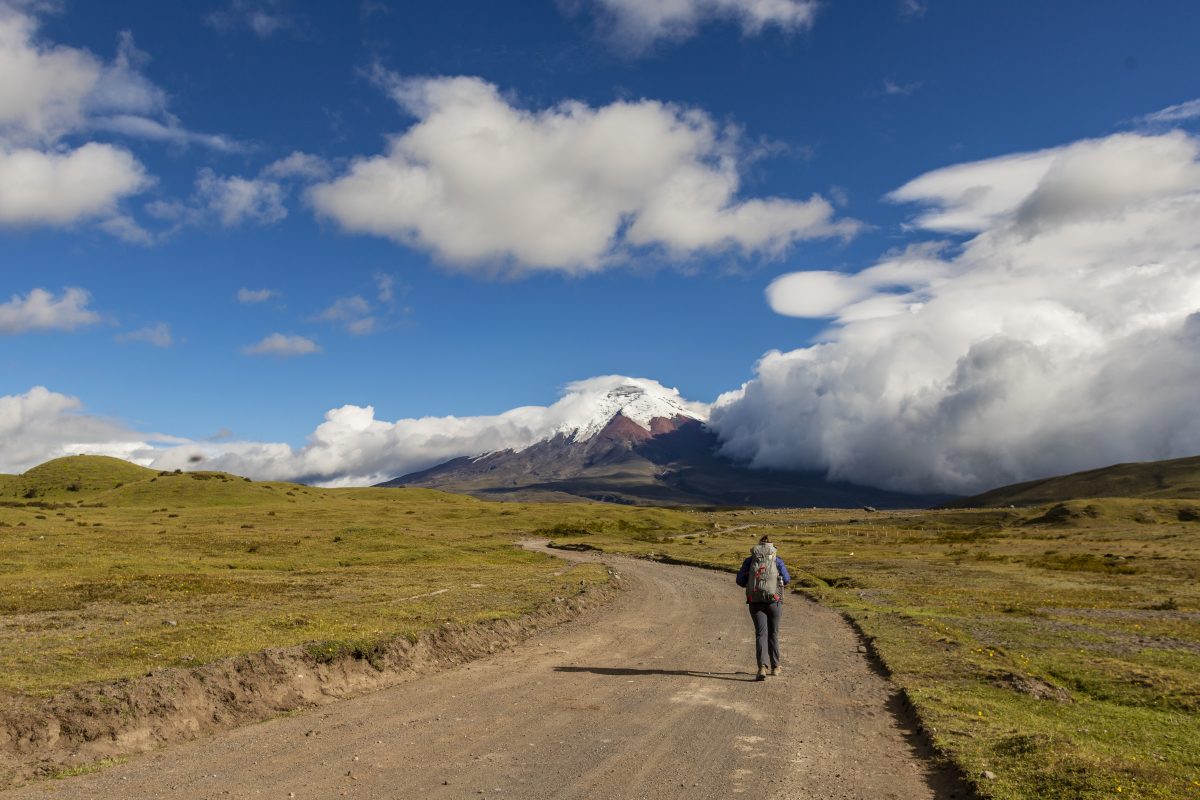The best parts of any adventure are the unexpected discoveries you make along the way. You can spend weeks planning your itinerary, figuring out logistics, and making sure everything fits in your pack, but you really can’t plan for the lessons you’ll take back from an adventure, and the personal growth that comes with them. My recent trip hiking through Ecuador reminded me of that.


Coming from the United States, where we have such a rich outdoor culture, I was happy to realize that spending time outside is as much a part of the culture there as it is back home. Felipe, our host in the Ecuadorian highlands, shared with us that he often walks a 9 mile loop on a sunny day, just because it’s there. Luis, who grew up at the foot of Cotopaxi, a snow capped volcano, talked about horseback riding through the park on his off time as the best way for him to relax. In Quilotoa, a volcanic lake above 12,000 feet, most of the visitors weren’t foreign, but Ecuadorian. Every single person we spoke with was happy to share their country’s nature with us, no matter where we were from.


Through conversations on the trail, a lot of the people we spoke with asked us where we came from. “California, in the United States,” became our default response. And in general, it was a satisfactory answer. But sometimes, it wasn’t. My partner and I are very lucky to speak fluent Spanish, which often prompted the question. And side by side, our skin tone is slightly different. I was asked multiple times if I had a Latin parent (my father is Brazilian), but my partner was not. In the US, such conversations are quite common for me to have. I often get asked where I’m “from from,” even though I was born in the States. And when I say that my parents are immigrants, a lot of people interpret that as meaning that I’m not entirely American — that somehow, I’m still different. But in Ecuador, when I told people that I had a Latin family member, their reaction was the opposite — it was one of acceptance. It was refreshing, and it made me think about what it means to be and feel American.


Coming home, I’m reminded that our country is going through a crisis. For the majority of our history we’ve been known as a beacon of freedom for immigrants from all over the world. People have come to the United States for a better life, often fleeing poverty or persecution in their home countries. What makes the United States so special is that anyone can be American, regardless of background. Lately, that welcoming reputation has been tarnished. While Ecuadorians welcomed us with open arms and shared their country with us, some in the United States are trying to close the doors to this country, locking out different people, cultures, and voices that have historically made us stronger.

Being open to those differences is as important as picking a different trail to hike on every now and then. Much like different trails challenge you to become a better hiker, learning from different perspectives challenge you to become a better person. I’ve come back from abroad with a renewed appreciation for the power of the trail, where everyone is an equal, everyone is welcome, and everyone, no matter where they’re from, what language they speak, or what religion they practice, has the right to #ThinkOutside.

For more video blogs and stories by Martin Froger, visit his website.



